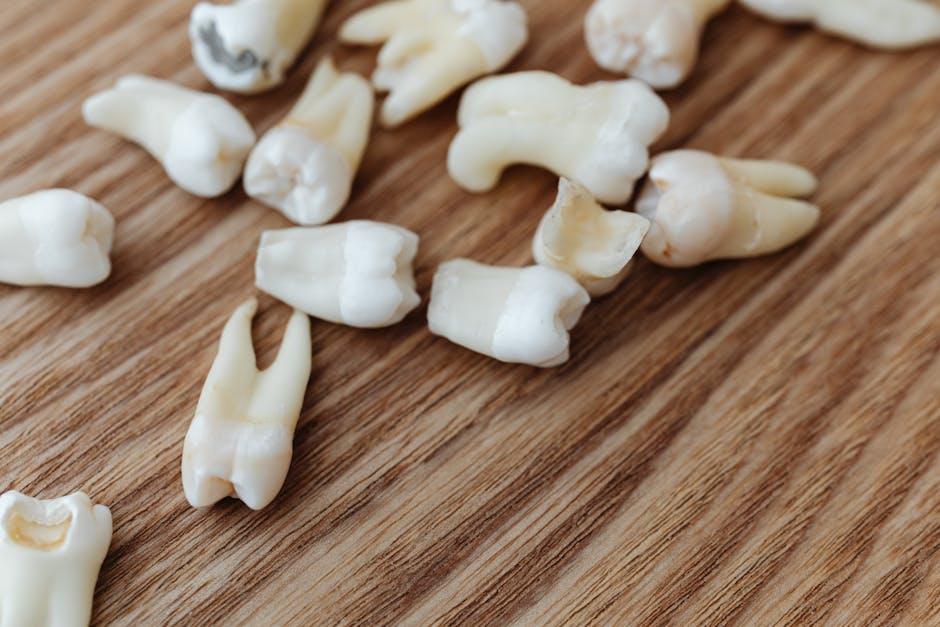
Stress Levels Are Leading to an Increase in Broken Teeth, Massachusetts Dentists Report – WGBH
Recent reports from Massachusetts dentists, as covered by WGBH, have highlighted a troubling spike in broken teeth linked directly to elevated stress levels. From jaw clenching to chronic teeth grinding, stress is taking a tangible toll on oral health across the state. This article delves into the causes behind this dental epidemic, symptoms to watch for, and practical tips to safeguard your smile during stressful times.
Understanding the Link Between Stress and Broken Teeth
Stress is more than a mental or emotional state—it can physically impact your body in significant ways. One of the less obvious but increasingly recognizable consequences of prolonged stress is damage to teeth. Dentists across Massachusetts have noted a conspicuous increase in patients reporting cracked, chipped, or completely broken teeth, often without a clear traumatic injury.
The Science Behind Stress and Dental Damage
When stress levels rise, the body typically responds with increased muscle tension. For many, this tension manifests as jaw clenching or bruxism (teeth grinding), frequently occurring unconsciously during sleep or periods of intense focus. Over time, this repetitive pressure can wear down enamel, weaken teeth, and ultimately cause fractures or chips.
Common Stress-Related Dental Problems
- Tooth Fractures and Breakage: Due to excessive grinding or clenching.
- Enamel Erosion: Accelerated wear from chronic pressure.
- Jaw Pain and TMJ Disorders: Stress affects the temporomandibular joint (TMJ), causing pain and dysfunction.
- Sensitivity and Increased Risk of Cavities: Damaged enamel exposes nerves.
What Massachusetts Dentists Are Observing
Dentists in Boston and surrounding areas report a notable trend: more patients are presenting with dental trauma directly linked to stress-induced behaviors. According to a WGBH report, many people have experienced broken teeth without an evident accident, often stemming from years of unnoticed teeth grinding exacerbated by pandemic-related anxiety and lifestyle changes.
| Observation | Details | Percentage Increase (Reported) |
|---|---|---|
| Tooth Fracture Cases | Patients needing repair for broken/chipped teeth | 30%+ |
| Bruxism Symptoms | Increase in jaw pain and teeth grinding complaints | 40%+ |
| TMJ Disorder Diagnosis | Reports of temporomandibular joint discomfort and dysfunction | 25% |
Signs and Symptoms to Watch For
If you’re under significant stress and concerned about your dental health, be alert for the following warning signs that might suggest stress-related damage:
- Frequent tooth pain or sensitivity without an obvious cause
- Visible cracks, chips, or fractures on your teeth
- Jaw soreness, especially in the mornings
- Grinding sounds during sleep reported by a partner
- Loose teeth or feeling of teeth shifting
- Headaches or earaches originating from jaw tension
Practical Tips to Prevent Broken Teeth Due to Stress
While stress is an inevitable part of modern life, managing it effectively can prevent severe dental consequences. Here are some dentist-recommended strategies to protect your smile:
- Wear a Night Guard: Custom night guards from your dentist can cushion your teeth from grinding damage.
- Practice Stress-Reduction Techniques: Meditation, yoga, deep breathing, and regular exercise reduce muscle tension.
- Maintain Regular Dental Checkups: Early detection of cracks or wear can prevent severe breakage.
- Avoid Chewing Hard Objects: Refrain from chewing ice, pens, or other hard items which exacerbate enamel damage.
- Stay Hydrated and Maintain Oral Hygiene: Keeping saliva flow healthy prevents dry mouth, which can worsen broken tooth risk.
- Consult a Professional for TMJ: If jaw pain persists, seek specialized treatment to avoid long-term dental damage.
Case Study: A Local Patient’s Experience
Lisa, a 34-year-old nurse working long COVID-19 shifts in Massachusetts, noticed increasing jaw soreness and unexplained tooth sensitivity. After consulting her dentist, she learned her teeth were suffering from stress-induced grinding aggravated by chronic anxiety. With the help of a custom night guard and mindfulness practices, Lisa has reduced further damage and is on the path to recovery.
Why You Should Take This Seriously
Ignoring stress-related dental damage can lead to severe problems:
- Expensive Treatments: Broken teeth often require costly restorations or crowns.
- Increased Risk of Tooth Loss: Severe fractures can cause permanent tooth loss.
- Chronic Pain: Untreated TMJ disorders or cracked teeth cause ongoing discomfort.
- Impact on Self-Confidence: Visible damage can affect appearance and self-esteem.
Massachusetts dentists urge patients to take a proactive approach and address stress not only for mental health but also for the well-being of teeth and gums.
Conclusion
Stress has far-reaching effects beyond mental wellness—it is increasingly responsible for a rise in broken teeth and dental problems in Massachusetts. As reported by WGBH and local dental professionals, managing stress and adopting preventive dental care are crucial to preserving your oral health. By recognizing symptoms early and leveraging practical tips like night guards and stress management, you can protect your teeth from irreversible damage and maintain a healthy, confident smile for life.


